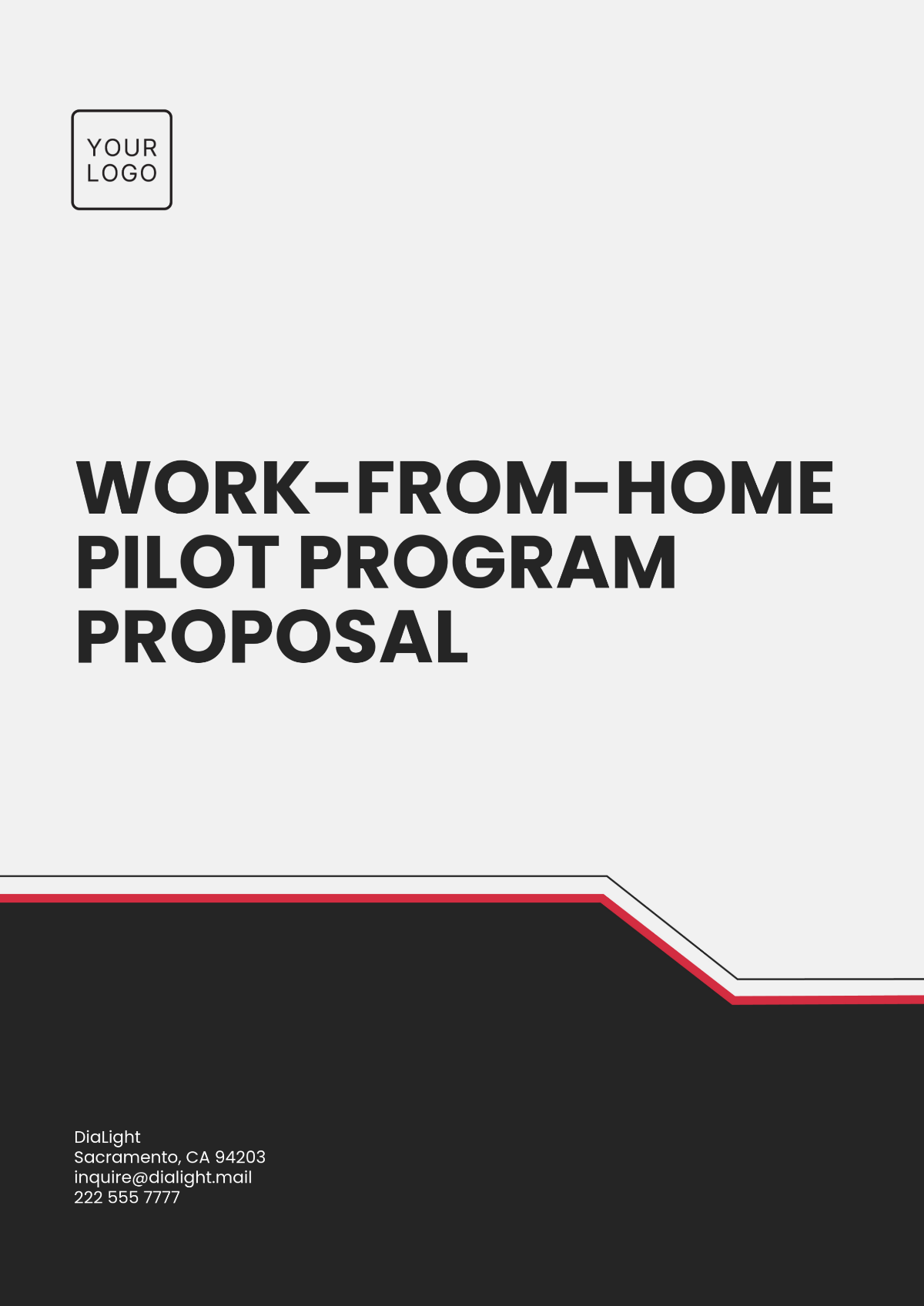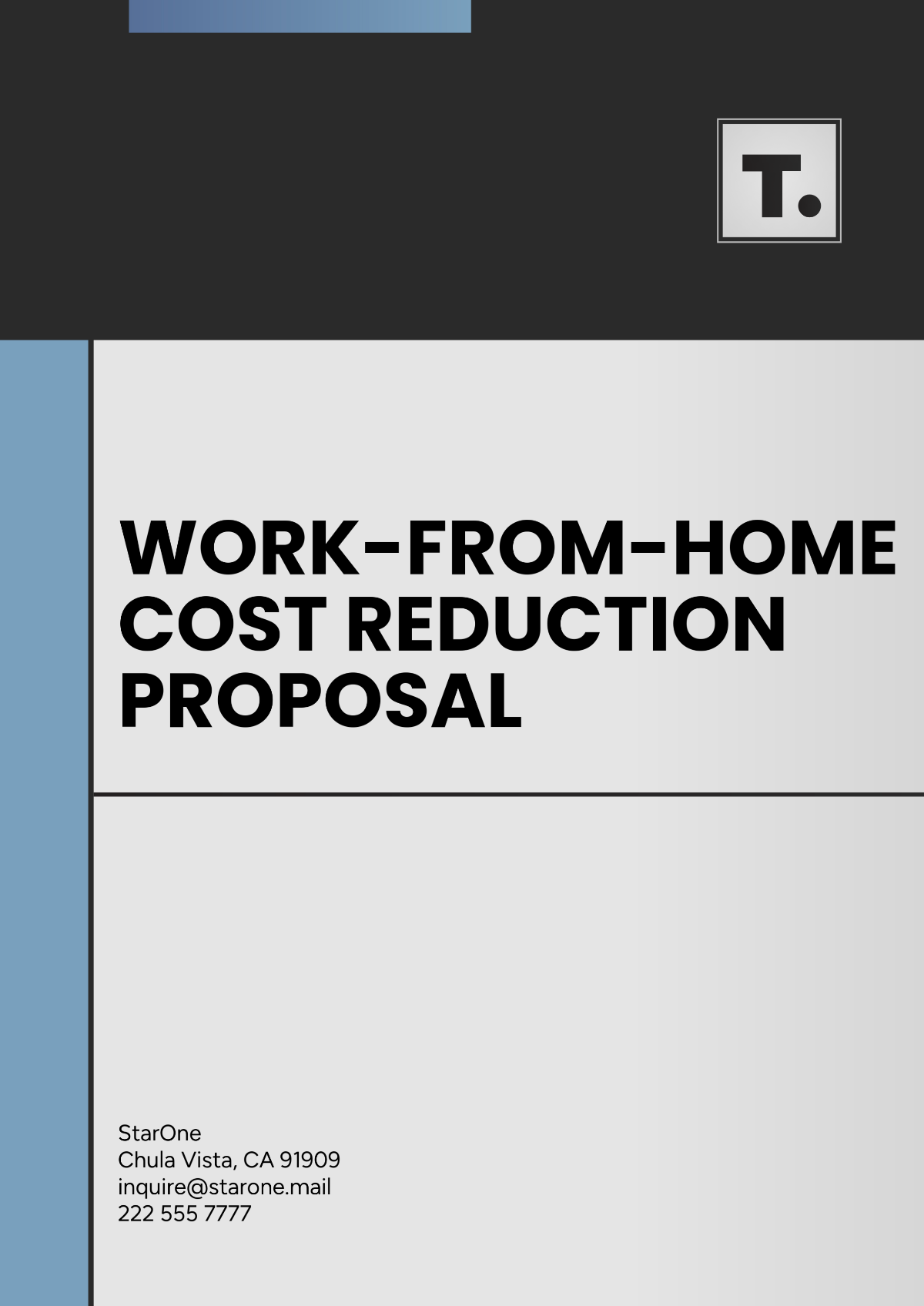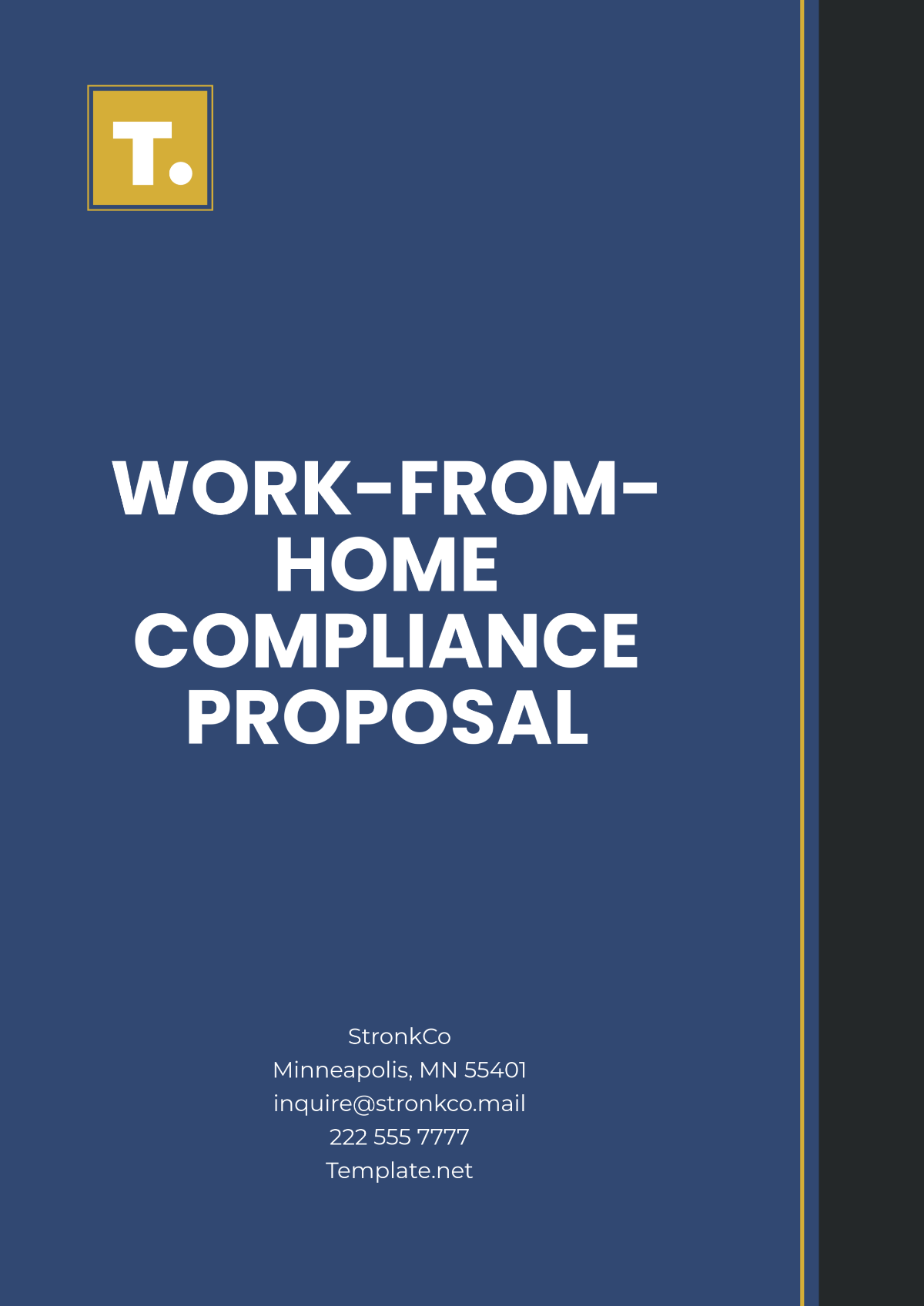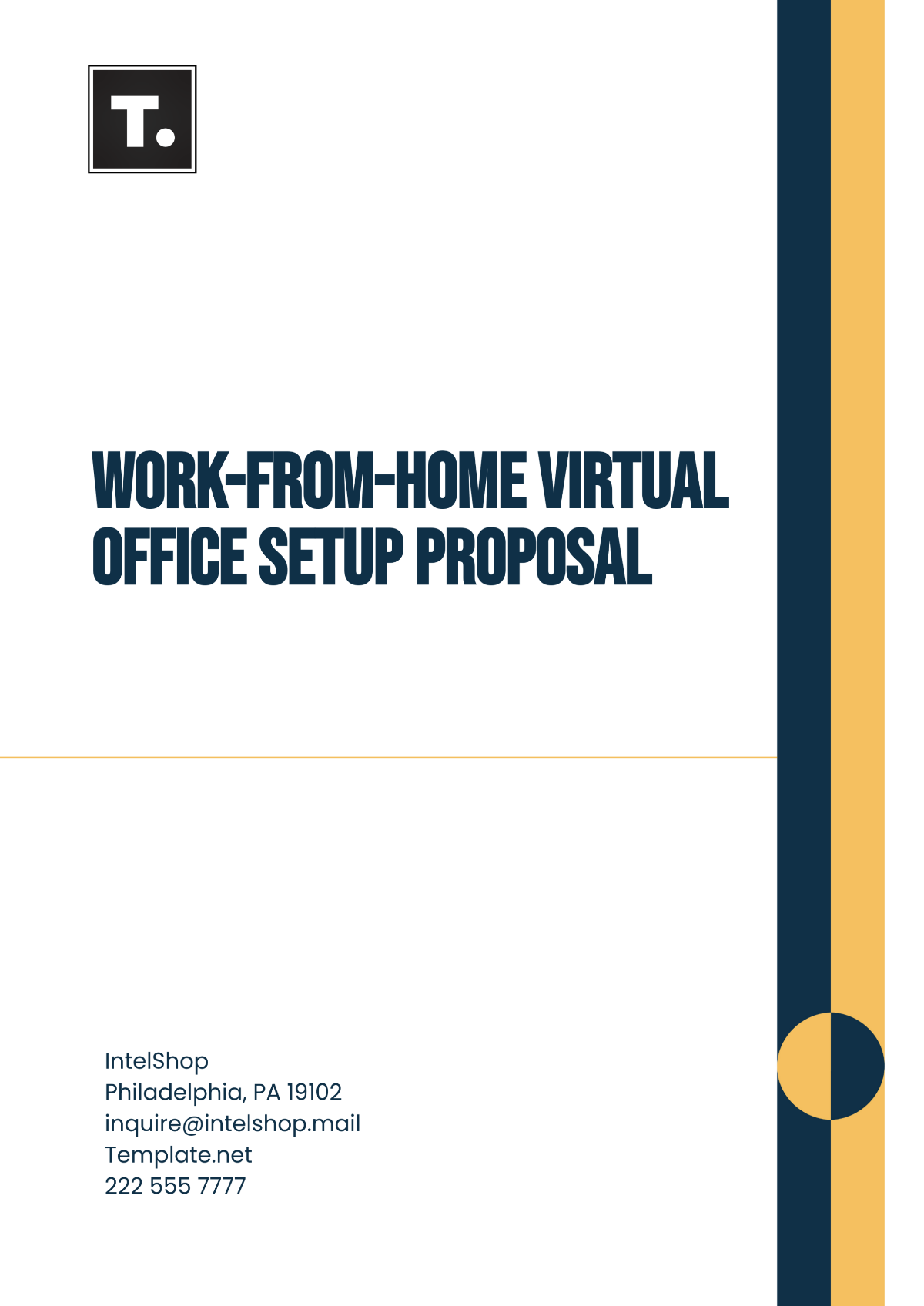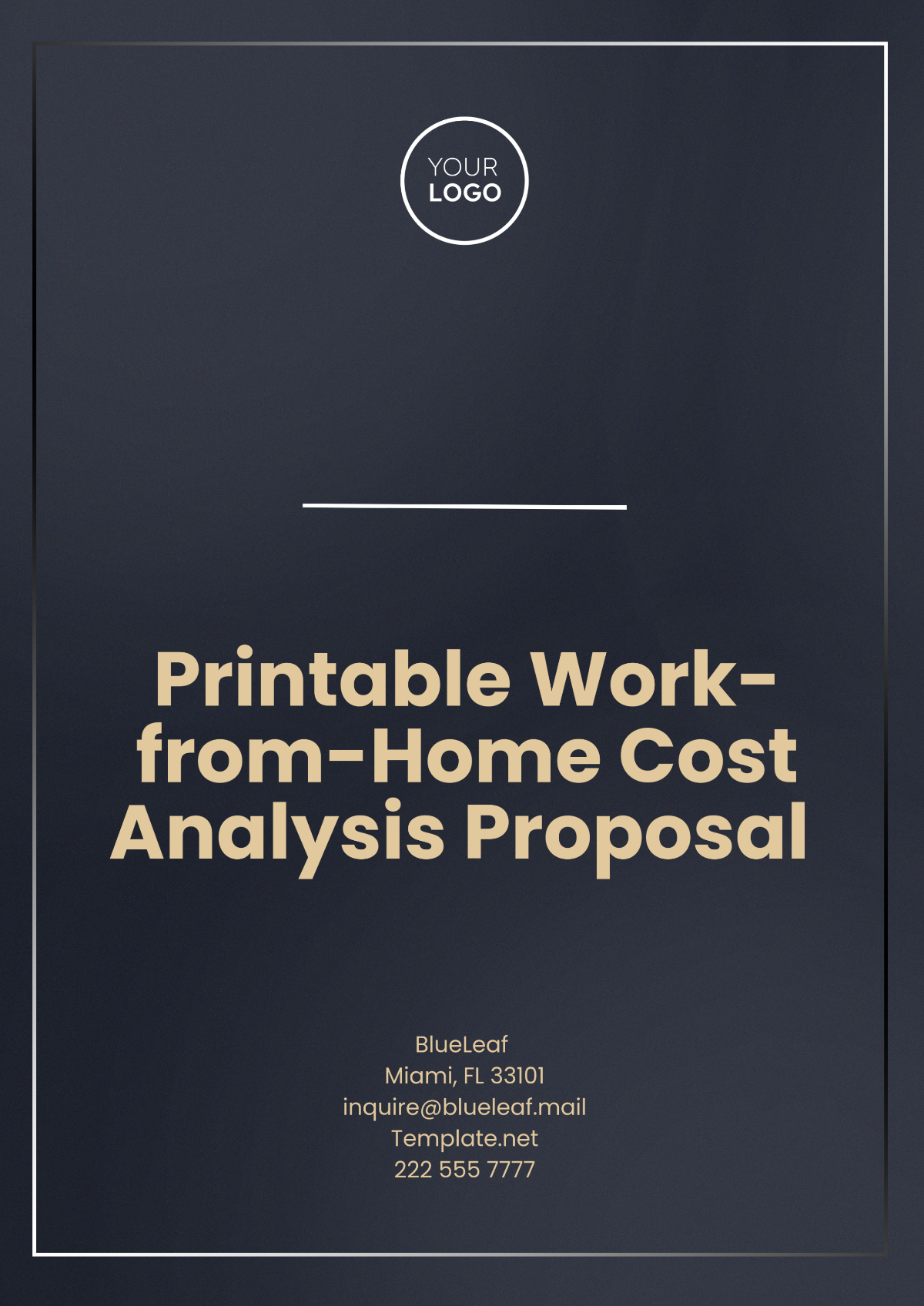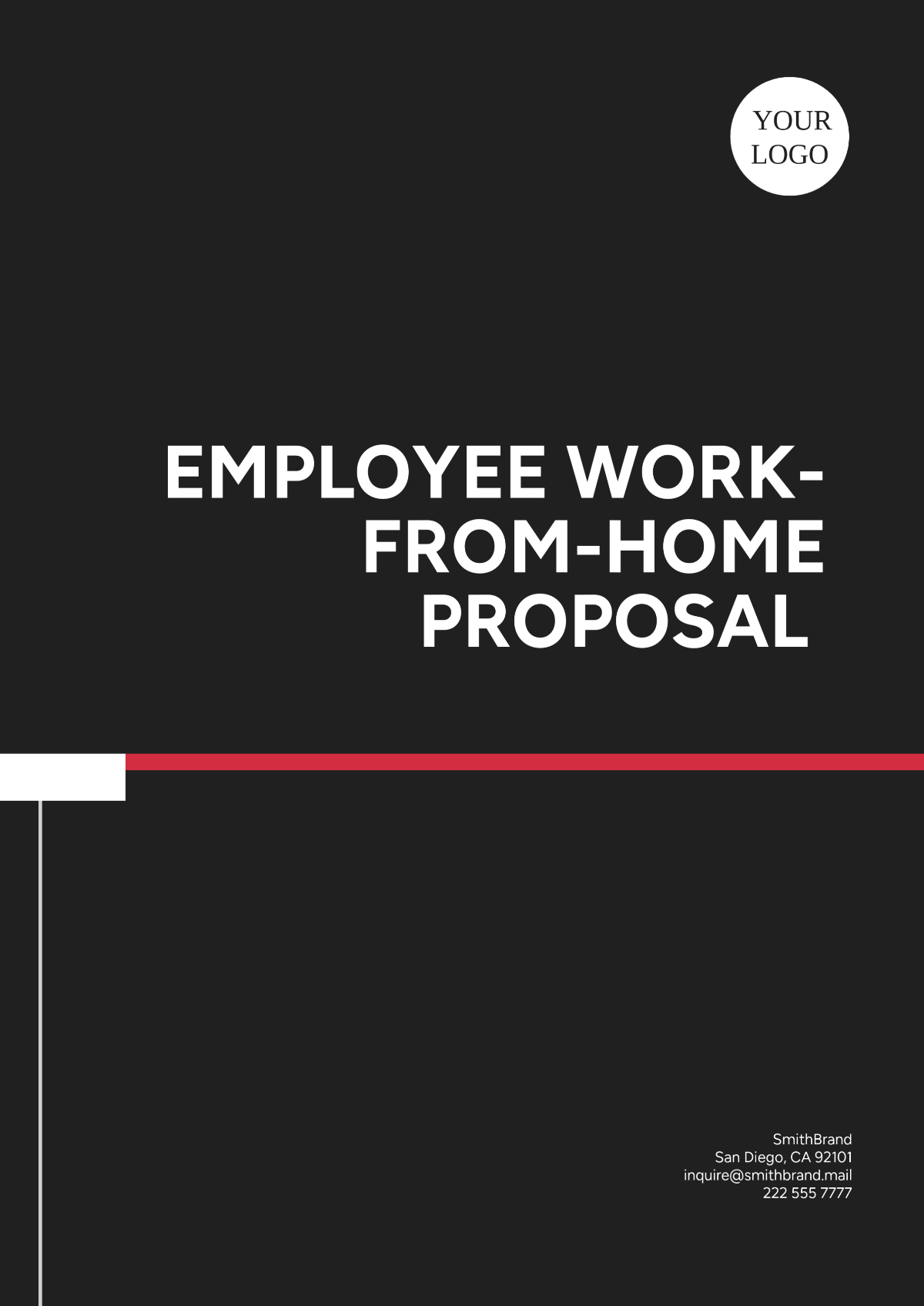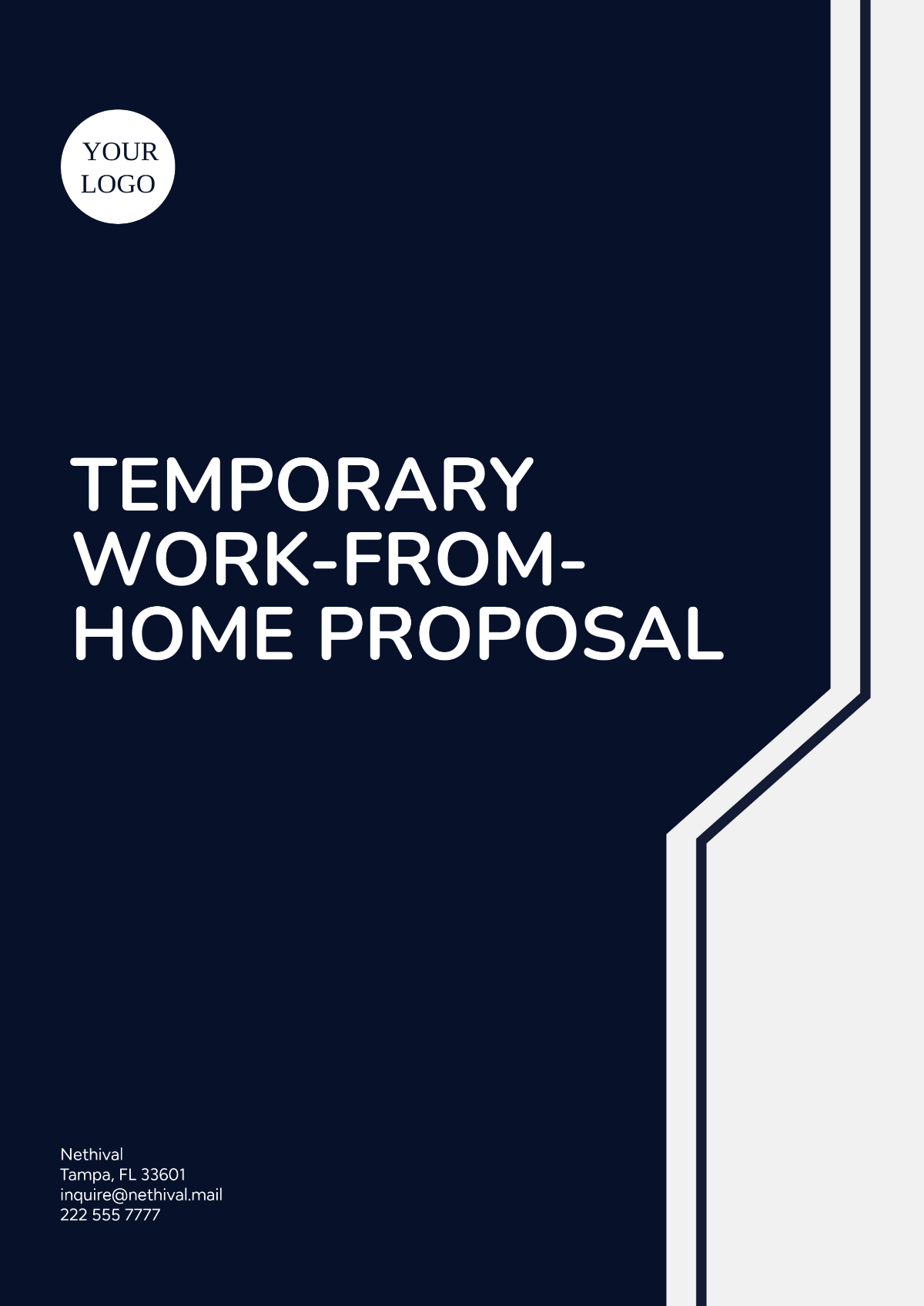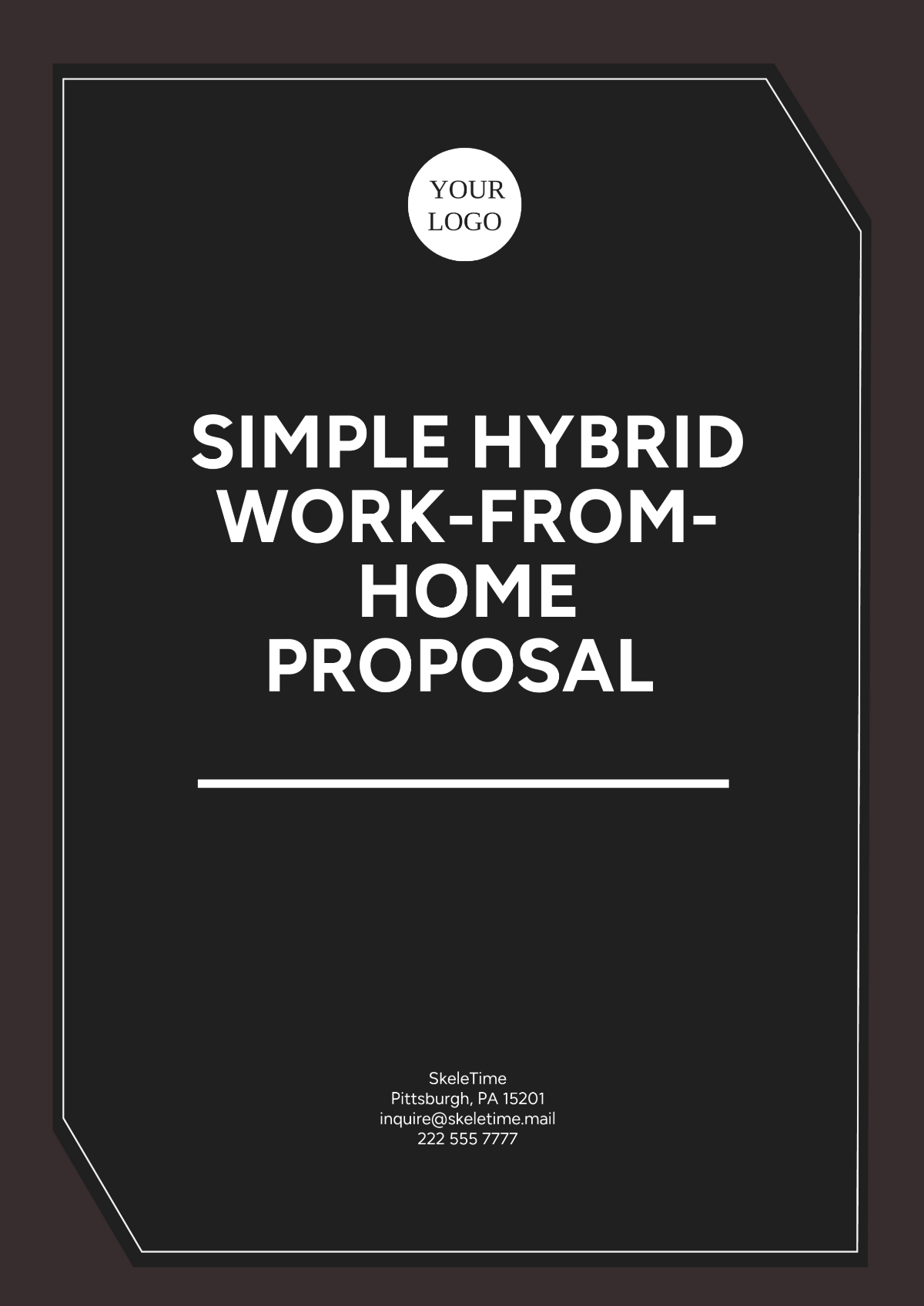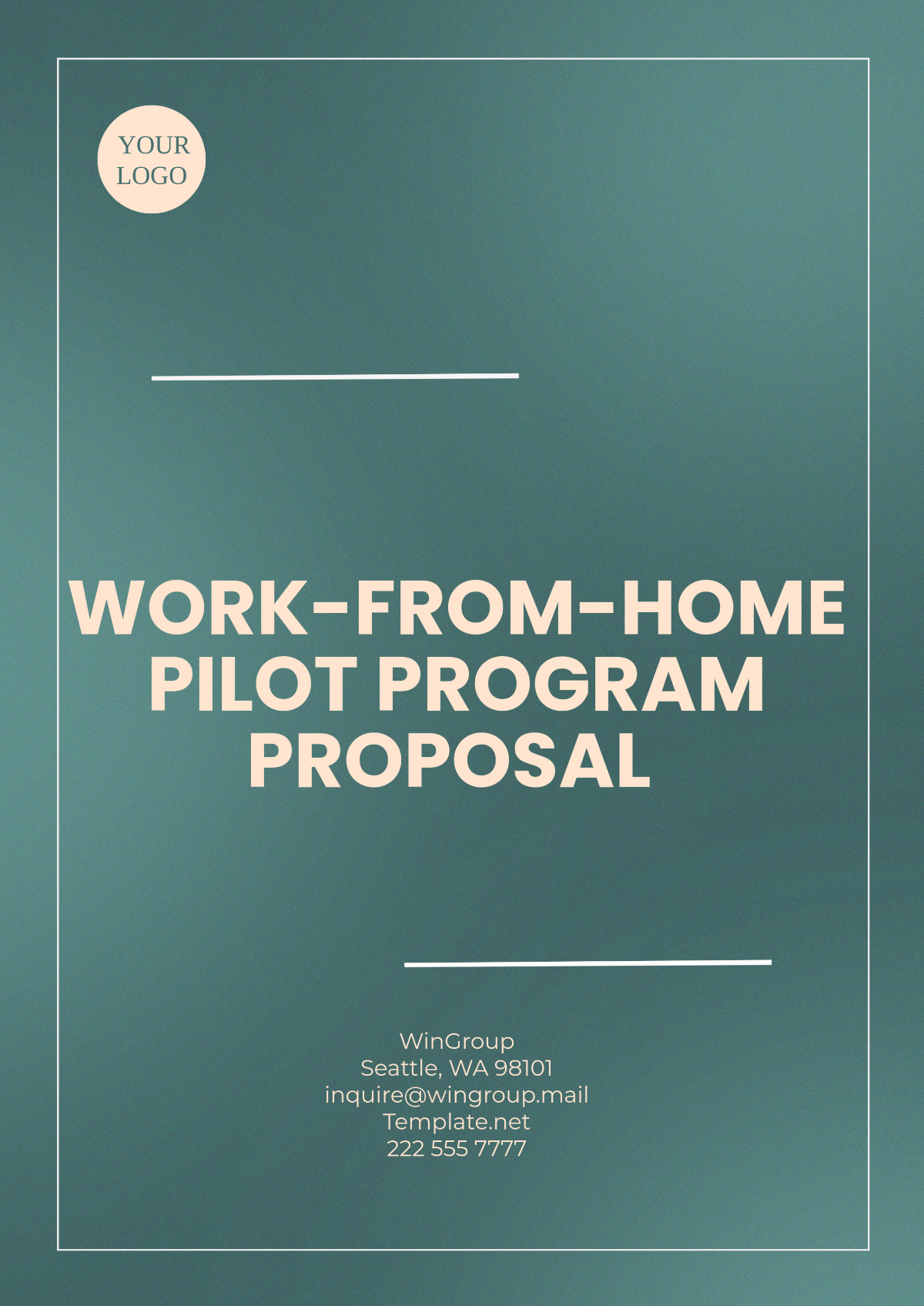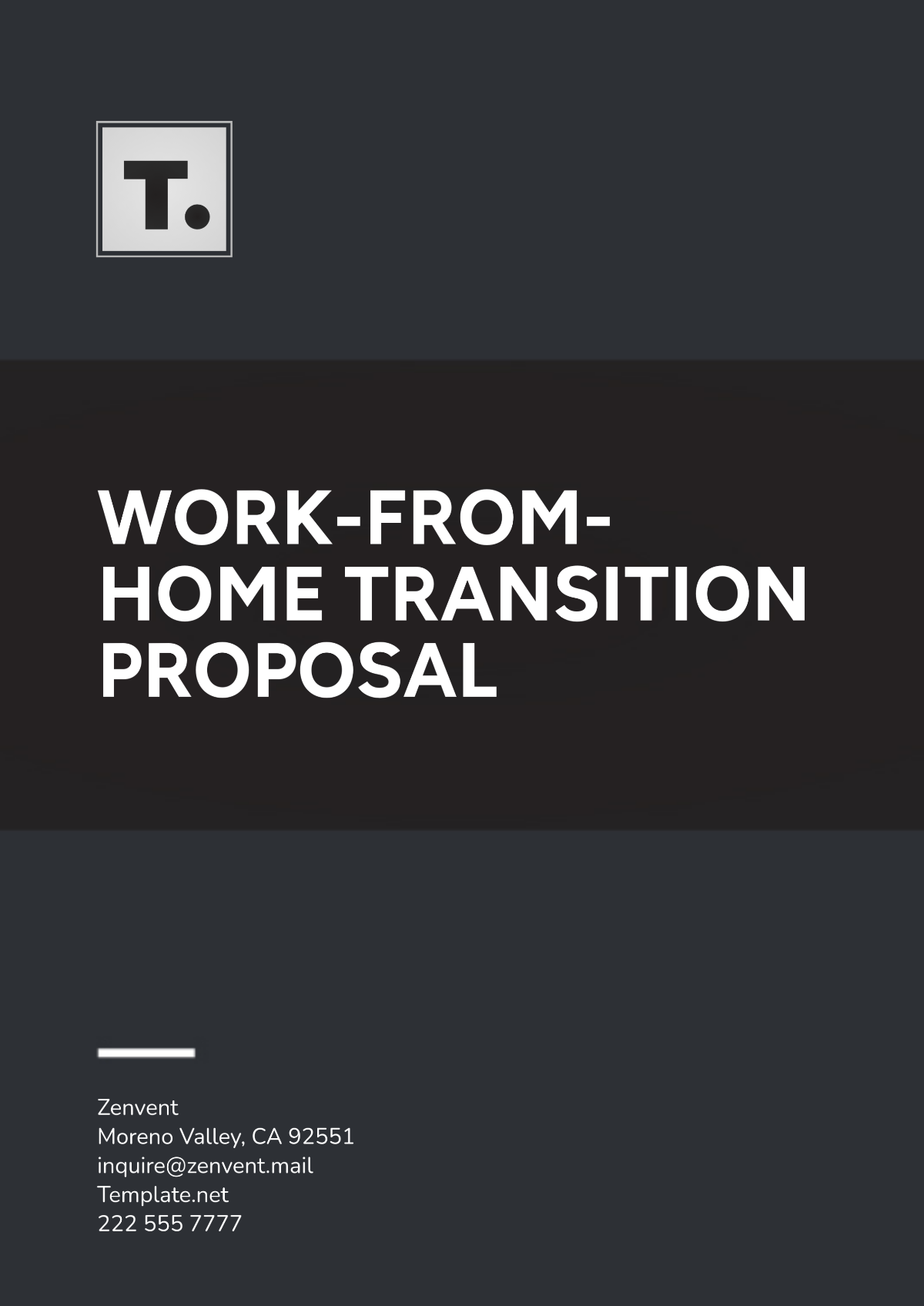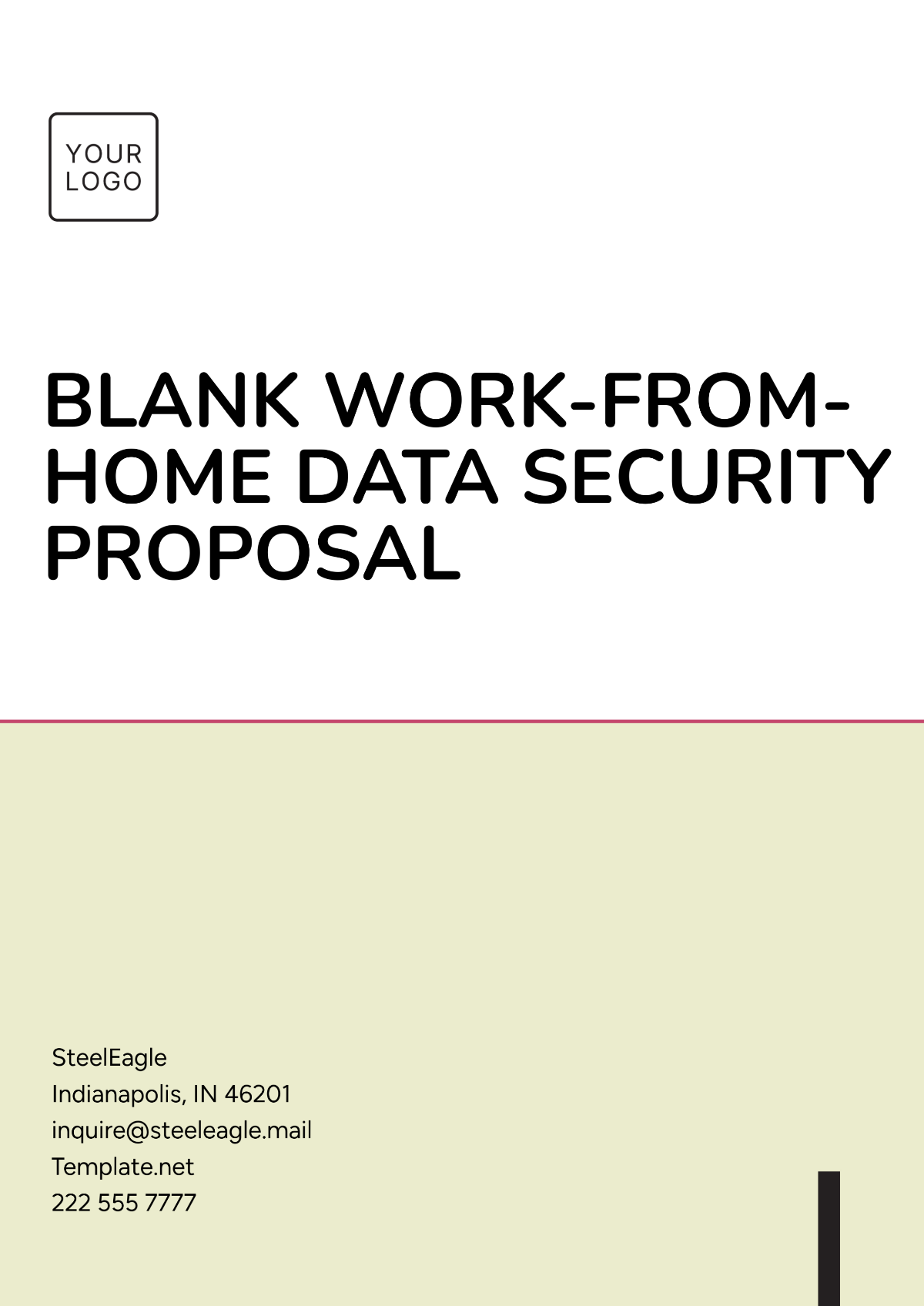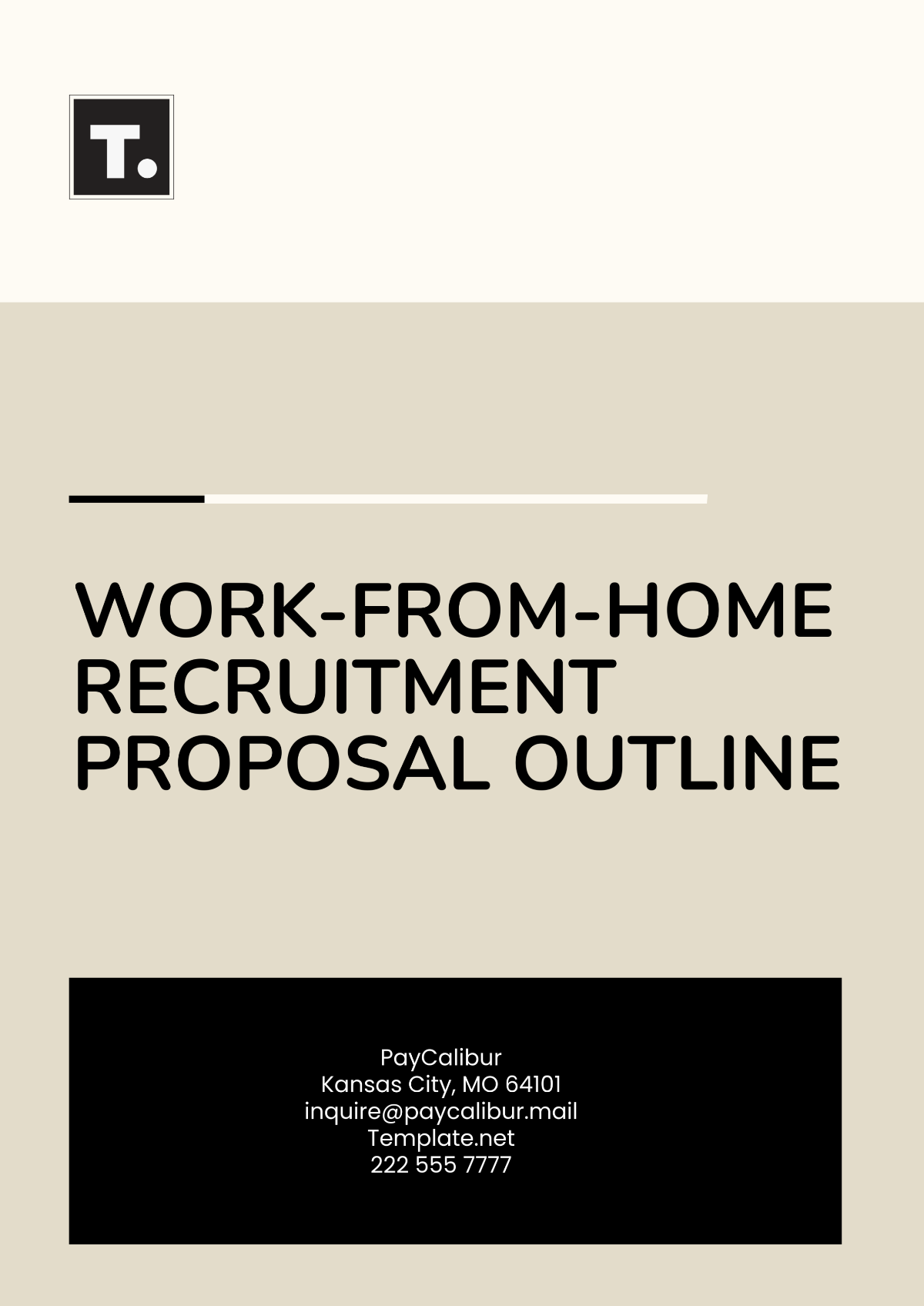Work-from-Home Recruitment Proposal Outline
Prepared by: [Your Name]
Date: November 10, 297
1. Executive Summary
Brief overview of the proposal.
Purpose of introducing work-from-home opportunities.
Summary of benefits for the company and potential candidates.
2. Objective
Define the main goals of the recruitment process.
Specific roles or departments the recruitment will focus on.
3. Job Roles and Requirements
List of roles eligible for work-from-home positions.
Required qualifications and skills for each role.
Technical or equipment requirements (e.g., internet speed, hardware, software).
4. Recruitment Strategy
Sourcing channels (e.g., job boards, social media).
Recruitment process (e.g., application, interview, selection).
Criteria for evaluating candidates (e.g., remote work readiness, communication skills).
5. Work-from-Home Policy and Expectations
Guidelines on work expectations (e.g., performance goals, availability).
Policies on remote work conduct (e.g., meetings, data security).
6. Training and Support
Training programs for remote workers.
Ongoing support structures (e.g., IT help desk, HR support).
7. Technology and Tools
Necessary software and tools for remote work (e.g., project management, communication platforms).
Security measures to protect company data.
8. Performance Management
Methods for tracking and evaluating performance remotely.
Regular check-ins and feedback loops.
9. Budget and Resources
Estimate of costs involved in implementing the work-from-home recruitment initiative.
Resources required (e.g., recruitment software, tools for remote work).
10. Timeline
Step-by-step timeline for the recruitment process.
Deadlines for job postings, interviews, and onboarding.
11. Conclusion
Recap of the proposal’s benefits for the company and the potential for success.
Call to action (e.g., approval for the next steps, resource allocation).



